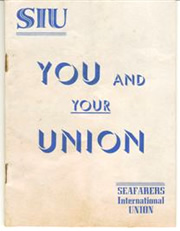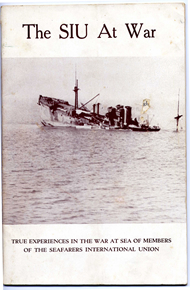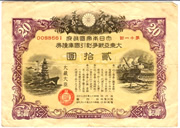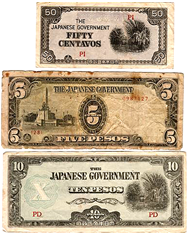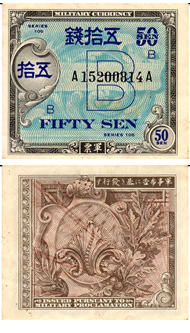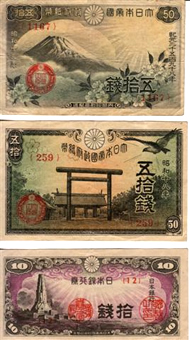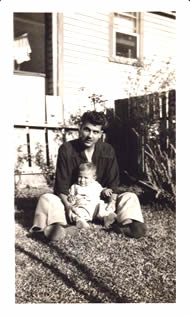Voyage Nine
SS Sturdy Beggar - Page 6
The Bos'n was an old union radical, a man named Greenhow. He was a mean old son-of-a-gun but he took a liking to me for some reason and he was always going on about trade unionism. I believed in the unions - I was a good SIU man. But he kept after me to join the Wobblies - The International Workers of the World. I finally gave him a year's dues, about thirty dollars, just so he'd quit bothering me. I still have that IWW union book with a years worth of stamps in it.
This old Bos'n could be nasty the way he talked to people. One time he hollered at Billy Brown, another Galveston kid who was a messman on the Sturdy Beggar. Greenhow was sitting in the mess room and he shouted at Billy, "Goddamnit, I said get me a cup of coffee!" Billy walked behind the Bos'n and picked up a catsup bottle and hit the old man in the head. The Bos'n started yelling that Billy had killed him and that he was bleeding to death. The other men in the mess started laughing because they saw that the Bos'n was covered with catsup not blood. Billy had broken the catsup bottle over his head, probably could have killed him.
I got along OK with the old man but he could be ugly and he was very radical in his politics. I don't know exactly what he did to piss off some of the younger guys, but Buddy Jordan and a couple of others were going to throw him overboard one time. They finally had to stop Buddy because he really meant to do it.
There wasn't much to do
when you were off duty but gamble. A card game was always going on. There was
this big kid whose daddy was a rancher out in West Texas. He had money and he
liked to gamble. I had three sixes and I kicked him and he kicked me back. I
don't know why I stayed with him as he kept upping the ante and obviously he
thought he had good cards. He said he'd stick with the cards he was dealt. I
threw in two cards and of the two cards that I drew, one was the fourth six. This kid thought he had a pat hand and we stayed with each other as the others
folded. There was a hundred dollars in the pot. When he saw my four sixes
he tore up his cards. Christ, did he get mad!
Heavy Weiss like to talk when he played and one time let slip that he could
tell when I had a good hand because he said when I did that I rushed the bet. I remembered what he said and later bluffed him good. I could tell that he thought
he had good cards and I only had a pair of eights. So I started hurrying the
pot. You know, urging guys to quit talking and play. Heavy kept upping the bet
and everybody but me folded. Then he started getting suspicious and said that
he could tell I had a good hand from the way I was pushing the play. Weiss threw
in his cards. It was kind of mean of me because after I took the pot I showed
him that all I had was the eights.
I always had a wad of foreign money. I guess some of it was worth something. I had quite a bit of occupation money printed by the U.S. government and some Japanese occupation money, too, when we left the Philippines. On the trip home I won a couple of thousand dollars also.
On the way back across the Pacific, Joe Amis, who was oiling in the engine room, got really sick. Before we got to the Panama he developed pneumonia. They had to take him off the ship when we got there. I can't remember why he needed this particular amount of money, but before they took him off I lent him fifteen hundred dollars. I had a roll of bills. I was always pretty good at poker and craps and we had been gone for months. These was my winnings. Joe Amis promised me that he would pay me back; we were good friends and I trusted him. He was from Dallas and a handsome guy who dressed to the nines. He took down my address in Galveston. I never saw him again, though about a year after the war he came by my mother's house looking for me. I was working, driving a truck for the Southern Pacific Railroad at the time. He told Mom that he couldn't wait but would be back later. He never did come back. I don't guess that I'll ever know for sure, but I'd like to think that he came by to repay me and that something just came up that prevented his coming back.
We almost didn't get to go through the Panama Canal. We didn't have any ballast. We were riding very high in the water and the officials at the canal were not going to let us through. The Captain raised holy hell and finally they said that if he would sign a waiver that he and the Mississippi Shipping Company would stand responsible for any damages, then they would let us through. The pilot made it clear that he didn't want any responsibility for taking an un ballasted ship through. But we made it without any problems. The ship left there on the 14th of December 1945 and arrived at New Orleans on December 19, 1945. They discharged and paid us off the next day and I caught a bus home to Galveston. I was home just in time for Christmas 1945. It was a surprise for my wife because she had been writing the shipping company since the war ended asking when I might return and they had sent her a letter saying that they didn't think we would come back before the end of the year. My infant son was six months old and already crawling when I got back.
